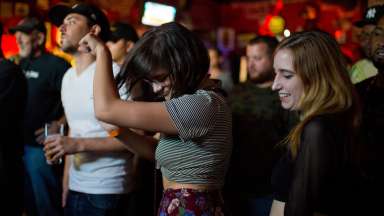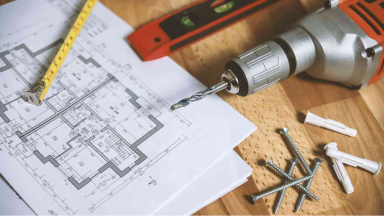Jump To:
Renewal Season is Here
Follow along on the Hospitality Permit Renewal Guide for step-by-step guidance of how to renew your permit in the Permit and Development Portal.
Renew by June 30 to ensure no lapse in permitted operations.
Helpful Links
The Hospitality and Nightlife Team within the Office of Special Events serves as a liaison between the hospitality and nightlife industry, the community, and City of Raleigh departments. Our goal is to find the balance between all community stakeholders to improve safety and promote culture, while reducing impacts on quality of life.
2025 Updates to Noise and Nightlife Ordinances
At City Council's direction, the City Attorney's Office revised parts of the Noise and Nightlife Ordinances to address recurring unlawful behavior.
The updates to the ordinances:
- Revise the appeal process for all civil noise citations so that the City Manager or the City Manager's designee decides any appeal
- Require a person receiving a noise citation to turn down the sound immediately. Thereafter, if the violator increases sound to an unlawful level, a law enforcement officer may direct that the sound be lowered to a lawful level. Each refusal is a separate offense. Note that the requirement to turn the sound down applies throughout the day that a citation is issued and during the 4 hours immediately after issuance. This 4-hour period covers nighttime violations that would otherwise be missed (e.g., violation at 11:30 p.m.; new day begins at 12:00 a.m.). If a bad actor refuses to comply, law enforcement officers can take enforcement action to address each violation.
- Requires any nightlife establishment that receives a noise citation to move all amplified sound inside a structure for twenty-four (24) hours.
City Council approved these revised ordinances on Jan. 7, 2025.
Review the revised ordinance in full:
Changes to the Amplified Entertainment and Noise Ordinances
At the Dec. 5, 2023 City Council afternoon meeting, Council authorized a repeal of the Amplified Entertainment Ordinance and enacted the Nightlife Permit Ordinance. On Jan. 2, the Council authorized updates to the Noise Ordinance. Both authorizations come after a multi-year effort to research, rewrite, collect public feedback and edit the ordinances.
- Read the updated Noise Ordinance
- Read the Nightlife Permit Ordinance
Both ordinances went into effect on Saturday, Feb. 3, 2024.
Nightlife Permit
The Nightlife Permit replaces Amplified Entertainment Permits (AEPs) and Hospitality District Entertainment Permits (HDEPs).
Eligibility
A Nightlife Permit is required for any establishment intended for food and/or drink consumption where all of the following criteria are met:
- The establishment falls within any one of the following:
- Assembly Group A-2 under the NC Fire Code
- Amusement arcade, bowling alley, community hall, or pool and billiard parlors under Assembly Group A-3 of the NC Fire Code
- Bar, tavern, nightclub, or similar business that falls within section 203 of the most recent edition of the NC Fire Code;
- Live or recorded entertainment is provided after 11:00p.m.; and,
- Alcoholic beverage consumption is allowed
Purpose
A Nightlife Permit ensures that such businesses operate in a safe manner and discourages criminal activities. Fire code, building code, zoning requirements, and public safety requirements are all key aspects of the Nightlife Permit Ordinance.
Note: amplified entertainment is governed under the Noise Ordinance, not the Nightlife Permit Ordinance
Permit Process
How to Apply
| Step | Description |
|---|---|
| 1. Review Nightlife Requirements | Review this page and Raleigh City Code of Ordinances to learn about necessary requirements. Not sure if you qualify for a Nightlife Permit or do you have questions? Reach out to us hospitality.programs@raleighnc.gov. |
| 2. Register and Submit Application | Register or login to your Permit and Development Portal account, and apply for a Nightlife Permit. |
| 3. City Review and Notification | The City will review submissions, reach out with any comments or feedback, and charge the permit fee. After successful building and fire inspections, the City will issue your permit. Permits are valid for one fiscal year July 1 - June 30. |
Fees
- $500 first-time applicant fee
- $100 renewal fee due each year by June 30th
Fire Technical Bulletin for Entertainment and Sound Shunt Device
A shunt trip breaker is installed in establishments to eliminate power to all sound producing devices and any special lights associated with sound in the event of an emergency situation. Sound producing devices include, but are not limited to televisions, monitors with sound emitting devices, karaoke equipment, live bands, DJ booths, juke boxes, and microphones.
The Office of the Fire Marshal may require your business to install a shunt trip breaker in order to receive a Nightlife Permit. Further details on this requirement including design, installation, and performance standards can be found in the technical bulletin.
Noise Feedback Form
The City of Raleigh is mindful of the impact an establishment’s amplified noise may have on neighboring residents. Those that become affected by an establishment’s sound are encouraged to utilize this noise feedback form. This form provides business contact information for residents to reach out to mitigate any issues and/or submit feedback to the Office of Special Events. The form does not generate a police response. For a police response, please call the non-emergency number at 919-829-1911.



